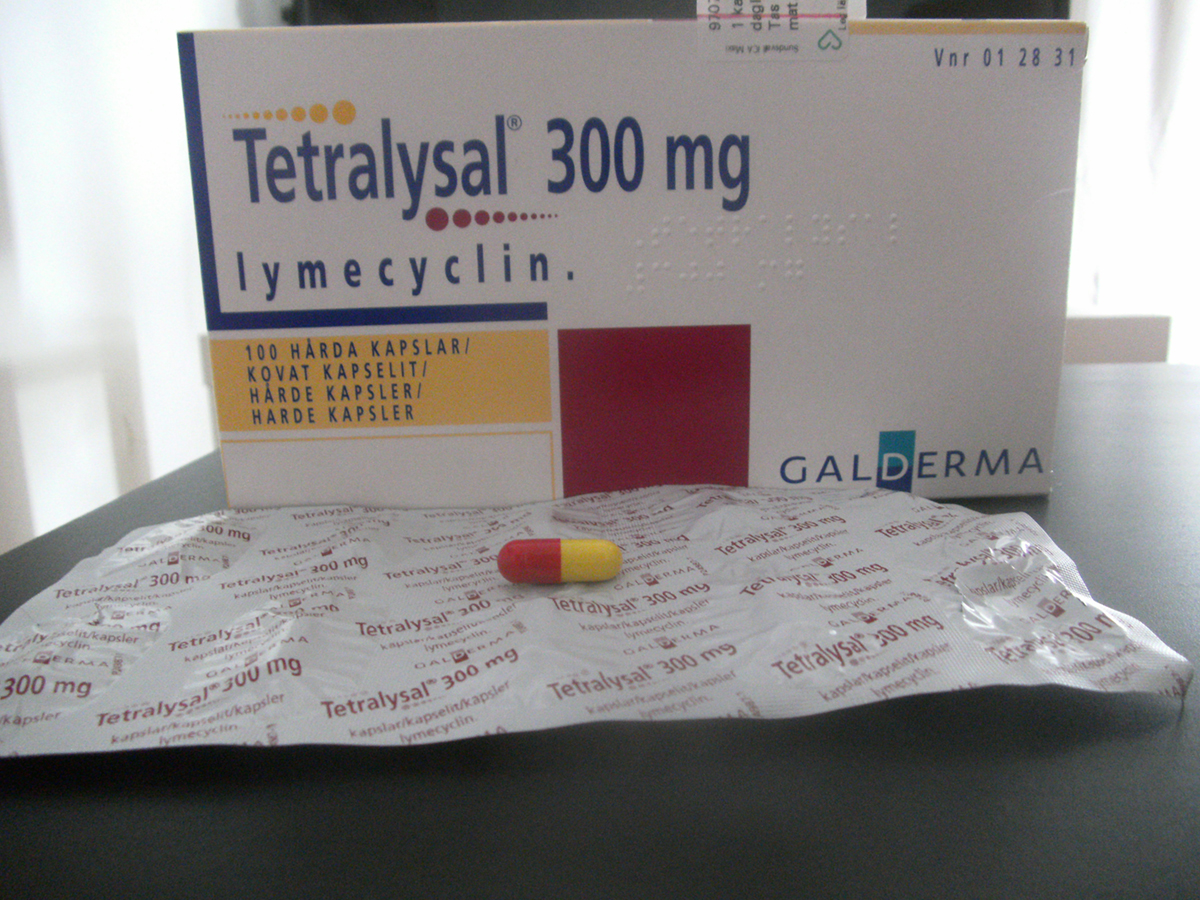No matter how efficient some medicine might be, it is generally known that there is no medicine that has only positive effects and does not have at least some side effects.
Even if rare, the possible side effects depend on every individual and on his or her medical condition, because different people react in different ways to many things, not only medications. It is the same with drugs, while some might feel certain side effects, others will probably not have unwanted reactions to them.
Tetralysal is a Mild Antibiotic
When it comes to tetralysal, a medicine which is also known under the name lymecycline, it is definitely considered to be one of the mildest antibiotics. The main reason for such an opinion is related to the fact that it is absorbed much faster than other tetracycline antibiotics, which means that it is efficient even in significantly smaller doses. It is used for the treatment of a wide range of infections.
Side Effects of Tetralysal
The most common side effects, and this does not mean that the majority of those who take this medication will probably experience them, are rash, headaches, diarrhea, colitis, nausea, and vomiting. It is also possible that a person who takes it will experience dermatitis, dysphasia, and even inflammation of the liver, or hypersensitive reactions and visual disturbance, but these side effects are much rarer.
Among the more serious side effects is also reflux oesophagitis, but it is only possible if tetralysal is used for a long period of time.
Patients with kidney or liver problems or diseases should not even consider taking this medicine, or, if it is necessary to use it, they should use it with extreme caution. Also, the drug is not intended for pregnant and breastfeeding women, or for children who are less than 12 years old.
Just the same, people with allergies should be prescribed an alternative antibiotic. The drug may also decrease the efficacy of penicillin, and some other medicines, which is why it should not be combined with other drugs based on this ingredient. Therefore, this combination should be carefully considered.
- For infections, the usual dosage is 1 capsule b.d. (600 mg/day). If higher doses are required, 3-4 capsules (900-1200 mg) may be given over 24 hours. Lower doses may be given for prophylaxis.
- Solid dosage forms of the tetracyclines may cause oesophageal irritation and ulceration. To avoid oesophageal irritation and ulceration, adequate fluids (water) should be taken with this medicinal product (see section Posology and method of administration).
- Overdosage could result in hepatotoxicity.
- Due to the risks of photosensitivity, it is recommended to avoid exposure to direct sunlight and ultraviolet light during the treatment which should be discontinued if erythematous cutaneous manifestations occur.
- The use of expired tetracyclines can lead to renal tubular acidosis (Pseudo-Fanconi syndrome) readily reversible when treatment is discontinued altogether.
- Tetracyclines readily cross the placental barrier. Therefore, Tetralysal 300 should not be administered to pregnant women.
- The most frequently reported adverse events with Tetralysal are gastrointestinal disorders of nausea, abdominal pain, diarrhoea and nervous system disorder of headache. The most serious adverse events reported with Tetralysal are Stevens Johnson syndrome, anaphylactic reaction, angioneurotic oedema and intracranial hypertension.
- As with all antibiotics overgrowth of non susceptible organisms may cause candidiasis, pseudomembranous colitis (Clostridium Difficile overgrowth), glossitis, stomatitis, vaginitis or staphyloccocal enterocolitis.
However, the unwanted side effects are usually experienced at the beginning of treatment. Even though they usually disappear in a few days and are not serious, if any of these symptoms are felt or noticed, a patient should stop taking this drug at once. If necessary, the patient should consult his or her general practitioner, in order to get an adequate substitute for the treatment.
Penicillin Antibiotics Used for Bacterial Infections
This type of medication is a group of antibiotics that are also used in the treatment of a wide range of infections that are bacterial in nature. Today there are at least 20 kinds of penicillin antibiotics, and they all work by killing bacteria and preventing them from multiplying and spreading, which means that there are bactericidal and bacteriostatic penicillins. They may be classified into several groups, depending on their ability to kill various types of bacteria. The most frequent infections that require the use of penicillin in their treatment include infections of the urinary tract, meningitis, pneumonia, infections of the respiratory tract, ear, nose, throat, and STDs such as gonorrhea, and syphilis.
Sometimes, these medications are used in order to prevent particular infections before or after the surgery. As for the use of penicillin antibiotics, in order to be as effective as possible, it is highly recommended to take them as prescribed and without missing a dose because it is necessary to keep the same level of it in the body, in order to work properly.
Side Effects
Even though penicillin antibiotics are generally considered to be safe, there are cases in which certain side effects are possible. First of all, such cases refer to people who are allergic to penicillin, since this is probably the most common side effect related to this medication.
Also, a person allergic to one type of penicillin antibiotics is very likely to be allergic to other types as well. It is very important to react timely in such situations, since delayed reaction may lead to anaphylaxis, which is a very severe allergic reaction that may even be fatal.
Symptoms of allergic reaction to antibiotics are more or less the same as for every allergy, so they consist of rash, hives, itching, swelling of the face, throat, or mouth, and problems with breathing.
Other possible side effects include diarrhea, vomiting, and headache, but it is also possible that white patches in the mouth or throat will appear, or even sore tongue. All these symptoms are only temporary, and they usually tend to disappear on their own once the body adjusts to the medication. Rarely some of these problems require additional medical treatment.
As for the side effects that are a bit more serious and that have been reported, they refer to bloody diarrhea, severe nausea and vomiting, and severe cramps in the stomach or abdomen.
Conclusion
To sum up, both tetralysal and penicillin-based antibiotics should be used for treating bacterial infections. Tetralysal is one of the mildest antibiotics due to the fact that our organism absorbs it quickly. However, we can experience side effects from both types of the above-mentioned medications.
Thus, stay on the lookout for symptoms of drug allergies and side effects of the drugs mentioned above, seeking medical assistance before too late.


















Your thoughts on this
Loading...